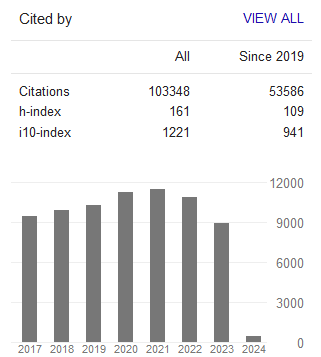Attitudes towards Vocational Education and Training in the Context of United Arab Emirates: A Proposed Framework
- Saif Ahmed Alnaqbi
Abstract
The main goal of this study is to investigate the effect of parents and students’ attitude towards the intention to enter the vocational education in the UAE through examining the impact of different factors of attitude such as individual, organization, social, and demographic. Due to the inconsistent results, a new research has established for further investigation through introducing new variables that may better explain the nature of that relationships. In the literature, many theories have suggested that link between variables such as The Theory of Reasoned Action (TRA), Theory of Planned Behavior (TPB) and Social Cognitive Theory (SCT). The scope of the study is limited to the students who involved and non-involved in vocational education and along with their parents in the UAE. The importance of this study has many sides in both theoretical and managerial contribution. Theoretically, however, the variables of this study before studied separately in different counties especially in developed countries, but not studied in developing countries such as the UAE. In addition, this study will investigate the integrated variables in one of the developing countries, which fill the gaps in the existing body of knowledge. Therefore, the effects of attitude of students and parents on students’ intention to VET program will be study. The target of sample will be the students in grade 12 from the vocational and technical schools and institutions in the UAE and also another students who are not in the VET program which were from grade eight, the grade which before the grade that accept student to enter VET program. After all the relevant interviews are complete, the answers for all of the questions will then be analyzed. The process of analyzing will has three major stages. Firstly, to obtain the correct knowledge and realize the profound meanings from the answers given, the investigators have to re-read the answers a few times. Second stage will be categorizing the answers into different groups. In the third stage, analyzing the answers according to these groups and defines them in a qualitative manner; this is to ascertain the main themes and applied meanings behind the answers given.
Statistical Package for the Social Sciences 18.0 software (SPSS) was used in order to test the quantitative questions of this research. The data will analyze in four ways: Descriptive statistics, independent, samples (t) test, one-Way ANOVA test and scheffe’ test.
In case of finding the results, the parents’ questionnaire will distribute the three domains: Vocational education importance, Vocational education future and Social perception of vocational education. Whereas the students’ questionnaire will distribute the four domains: vocational education attitudes, social perception of vocational education, vocational education future and vocational education importance.
Furthermore, this study will help UAE government to plan, implement, enhance the vocation education within students to motivate them and develops their skills to find jobs for sustainable future. The increasing amount of technical education and vocational training resembles to a lowering capacity by business owners in the private industries, reflecting the negative effects of the basic operating sector of the production of technical education and vocational training. The significance of the study is prevail in being one of the first studies dealing with the connection between the schools of technical education and vocational training schools and the private sector (as a business) market.
- Full Text:
 PDF
PDF
- DOI:10.5539/ijbm.v11n1p31
Journal Metrics
Google-based Impact Factor (2023): 0.86
h-index(2023): 152
i10-index(2023): 1168

Index
- Academic Journals Database
- AIDEA list (Italian Academy of Business Administration)
- ANVUR (Italian National Agency for the Evaluation of Universities and Research Institutes)
- Berkeley Library
- CNKI Scholar
- COPAC
- EBSCOhost
- Electronic Journals Library
- Elektronische Zeitschriftenbibliothek (EZB)
- EuroPub Database
- Excellence in Research for Australia (ERA)
- Genamics JournalSeek
- GETIT@YALE (Yale University Library)
- IBZ Online
- JournalTOCs
- Library and Archives Canada
- LOCKSS
- MIAR
- National Library of Australia
- Norwegian Centre for Research Data (NSD)
- PKP Open Archives Harvester
- Publons
- Qualis/CAPES
- RePEc
- ROAD
- Scilit
- SHERPA/RoMEO
- Standard Periodical Directory
- Universe Digital Library
- UoS Library
- WorldCat
- ZBW-German National Library of Economics
Contact
- Stephen LeeEditorial Assistant
- ijbm@ccsenet.org
